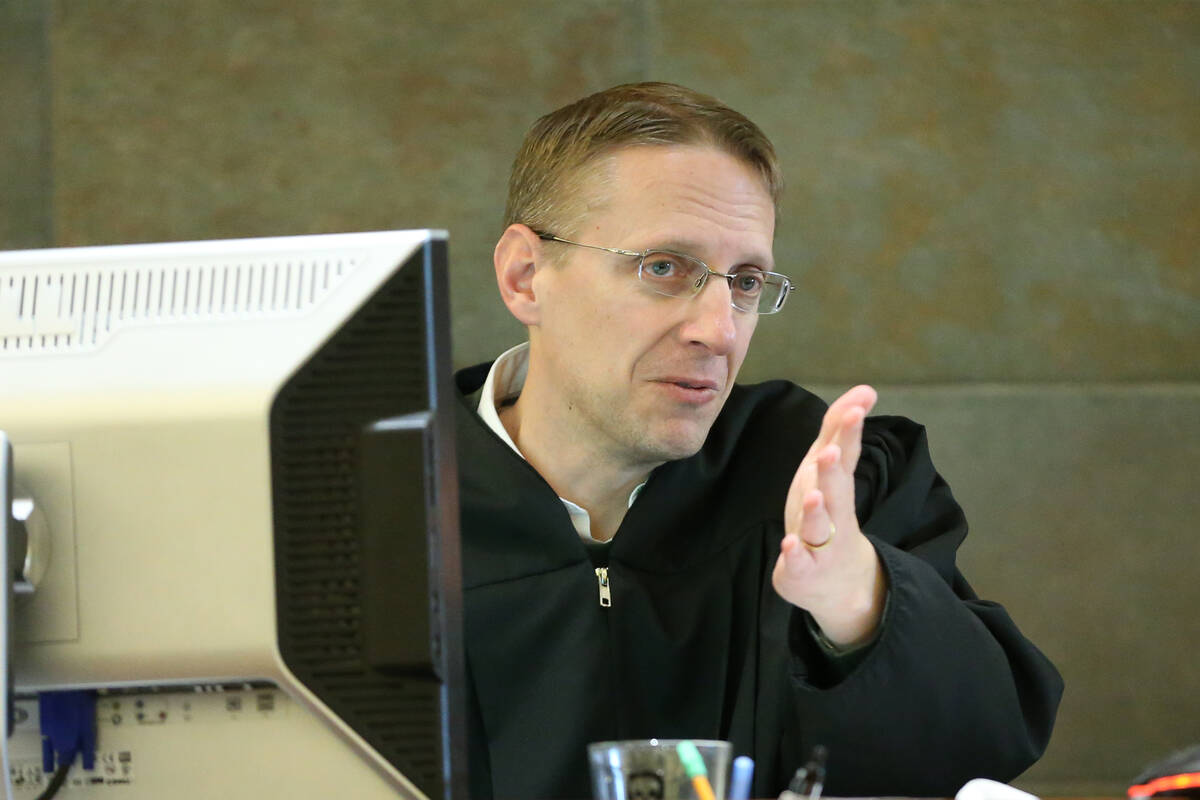Nevada’s drug classification for cannabis ruled unconstitutional
The Nevada Board of Pharmacy’s classification of cannabis as a Schedule 1 drug is unconstitutional, a district judge ruled Wednesday.
The ruling came in a lawsuit filed against the Board of Pharmacy by the American Civil Liberties Union of Nevada on behalf of plaintiffs Antoine Poole and the Cannabis Equity and Inclusion Community, an organization that helps people get established in the state’s marijuana industry.
Cannabis is currently a Schedule 1 drug, on the same level as drugs such as heroin and LSD, meaning the Board of Pharmacy considers those drugs to have a high potential for abuse or no accepted medical use in the United States.
On Wednesday, District Judge Joe Hardy Jr. agreed with the ACLU’s argument that marijuana does have an accepted medical use, because voters amended the state constitution in 2000 to legalize medical marijuana. He also ordered the Board of Pharmacy to remove cannabis from the list of Schedule 1 drugs.
“The constitutional right to use marijuana upon the advice of a physician does establish that marijuana has an accepted medical use and treatment in the United States,” Hardy said.
Brett Kandt, a lawyer representing the Board of Pharmacy, argued that federal agencies had not determined that marijuana has an accepted medical use. Kandt also argued that the change to the state constitution didn’t explicitly specify that marijuana had medical value.
“Certainly, the voters in passing that initiative were making a value judgment on the right of a patient to make treatment decisions in consultation with their physician, but they weren’t necessarily making a value judgment on medical marijuana and its efficacy,” Kandt said.
Kandt declined to comment after the hearing.
Chris Peterson, a lawyer with the ACLU, said Wednesday’s ruling was the first step toward overturning marijuana-related convictions in the future.
“We’ve not brought it in this case before the court, but we’ll be looking to see whether or not this can be retroactively applied,” Peterson said.
During the court hearing, Hardy said he was not ruling on any issues related to overturning convictions for marijuana-related crimes, because the ACLU’s lawsuit did not address the topic.
Peterson said Wednesday’s ruling will prevent people from being prosecuted for marijuana-related crimes under laws that only apply to Schedule 1 drugs but don’t specifically reference marijuana.
Poole, one of the lawsuit’s plaintiffs, was found guilty in April 2017 of possession of a controlled substance, after recreational marijuana was legalized in Nevada, according to the lawsuit. Athar Haseebullah, the executive director of the ACLU of Nevada, has previously said that the conviction has prevented Poole from “doing basic things,” such as getting a license to become a barber.
While the ACLU also argued that the Board of Pharmacy should not have any regulatory power over marijuana, Hardy said he would rule on that issue in the upcoming weeks.
Peterson said the Board of Pharmacy could theoretically give cannabis a less severe classification level, but it will depend on the judge’s ruling on the board’s overall authority to regulate marijuana.
The ballot measure legalizing marijuana in Nevada in 2017 signaled that voters want the drug regulated similarly to how alcohol is regulated, Peterson said.
“We are simply dragging the agencies, kicking and screaming, into that framework and making sure that it’s doing what it needs to do,” he said.
Contact Katelyn Newberg at knewberg@reviewjournal.com or 702-383-0240. Follow @k_newberg on Twitter.























